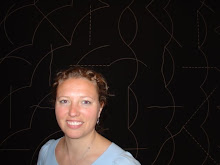Lucy Grealy’s Autobiography of a Face was not a story about cancer. It was a story about a girl eventually becoming a woman who wanted love yet wasn’t being fulfilled to her satisfaction. Her disfigured face seemed to her the culprit. However, like many people, Lucy’s loneliness and initial understanding of the world left her with the wrong answer.
Lucy was loved and Lucy was learning to love. The simple love of an animal or toy was her easy love. Her childhood friendships were a second love. Mature adult love became elusive. But Lucy found substitutes. She discovered “being good” love and “bravery” love and “medical” love and “sex” love and finally “knowledge” love. Ultimately Lucy is convincingly lovable and unlovable. It’s easy to believe that her face was an obstacle to romantic love, and perhaps a venue towards gracious love.
But Lucy did have cancer at the age of nine. She lived. She had life-long pain. She went home after surgery and then back to school with a large part of her lower jaw missing. Growing up in hospitals almost as much as at home certainly lends itself to another entire realm of development of self view, and world view. The amount that Lucy scrutinizes her own ideas and then the ways she copes with them is formidable.
The ability Lucy had to express herself was a wonderful gift. Her decision to write a story about her story was bold. It’s Lucy’s perception of luck and relativity and hypocrisy that seals her life’s most extraordinary work. The only justice that I can do is to refer back to her own writing. I am thankful to have read what she extracted from her life experiences and although the creation is hers, somehow I feel that Lucy and I might understand one another just a little. But, even if we wouldn’t, I appreciate my own needs in a new light and will consider others’ differently, as well.

No comments:
Post a Comment